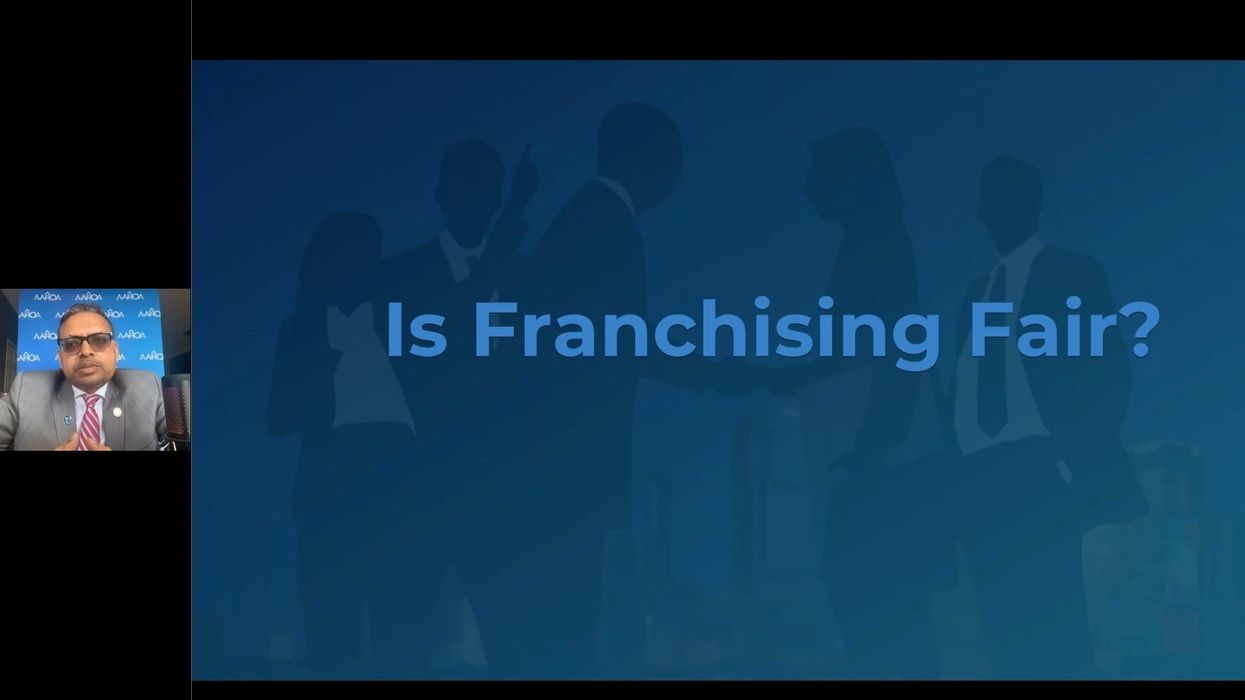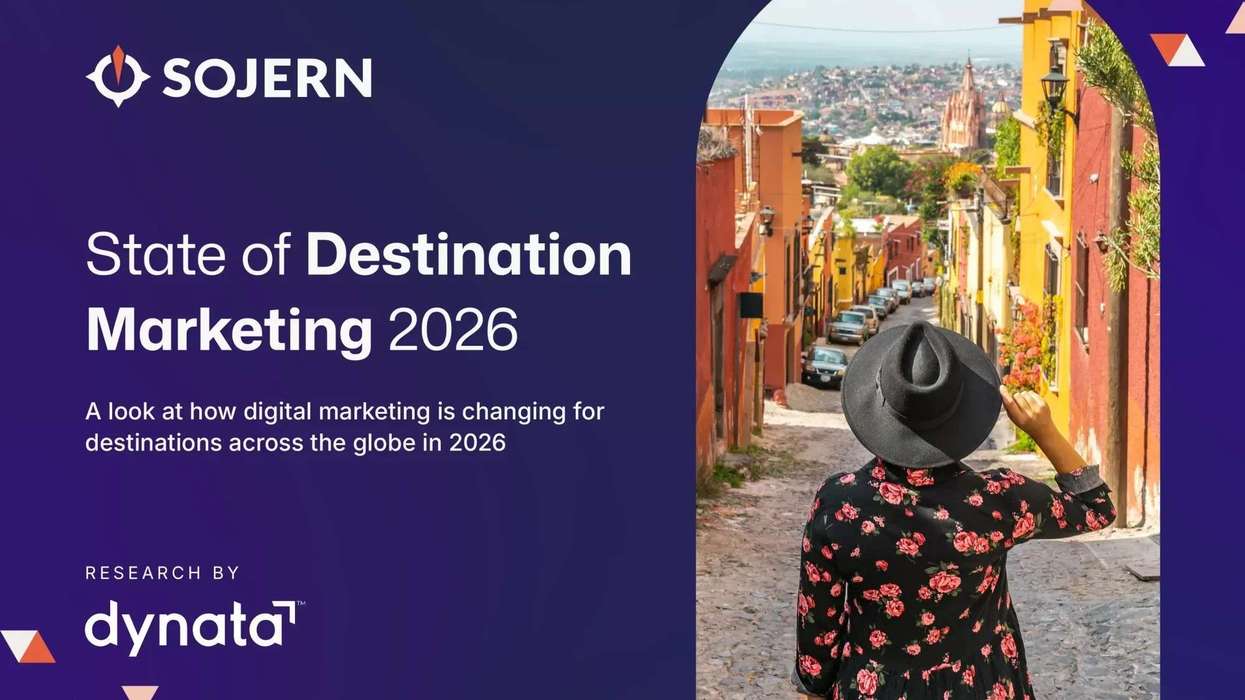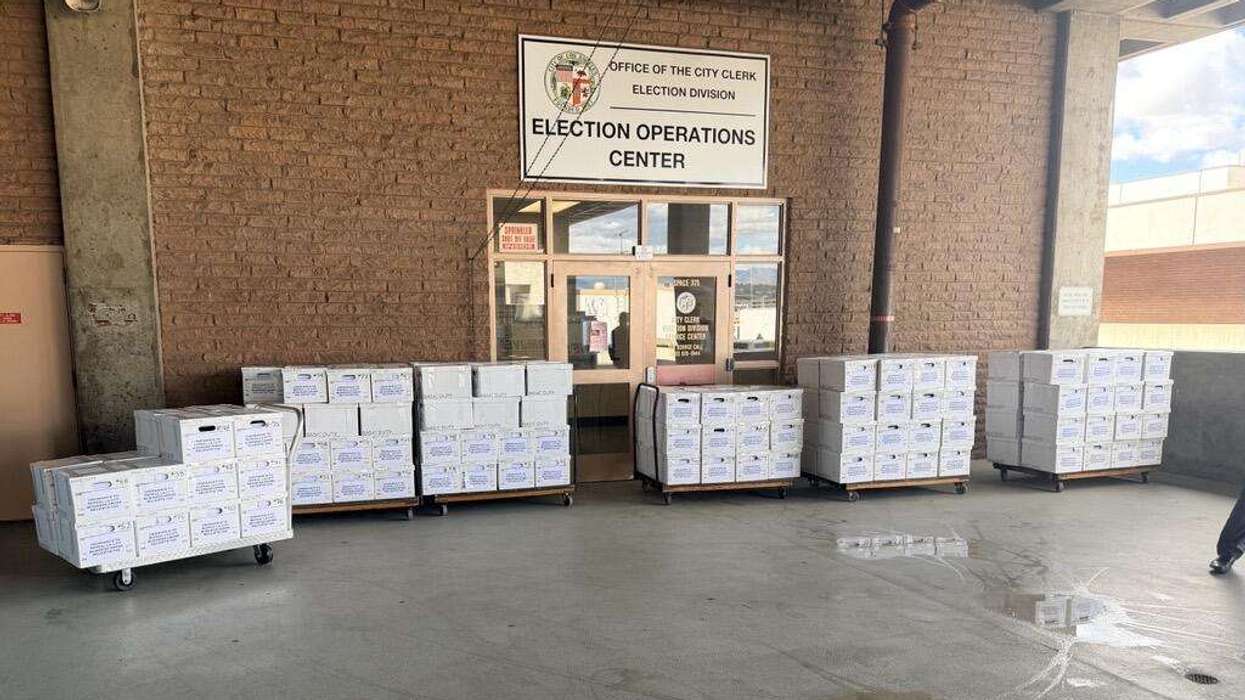THE AMERICAN FRANCHISE business model is in trouble, according to a recent survey commissioned by AAHOA. The survey was inspired by a webinar AAHOA co-sponsored to gather public comment on the state of franchising for the Federal Trade Commission.
The survey found that only 5 percent of the franchisee respondents are satisfied that their current franchise agreements provide fair terms representing a balanced relationship between themselves and their franchiser. Also, 72.6 percent of respondents would “possibly” or “probably” terminate their current franchised business within the next year if they could do so without penalty.
“Franchising is in dire straits unless changes are made,” said Laura Lee Blake, AAHOA president and CEO. “Franchising is still a powerful tool for economic mobility for America’s small-business owners, including AAHOA Members. But franchising only works when both franchisors and franchisees are committed to its success, which requires transparency, fairness, and sustainable business practices. As this survey shows, there is much room for improvement when it comes to relationships that allow our small-business owners to thrive.”
Blake recently wrote an editorial supporting AAHOA’s 12 Points of Fair Franchising and its promotion of a proposed New Jersey law that would reform that state’s franchising regulations in ways similar to the 12 points. Several large hotel companies, including Choice Hotels International and Marriott International, protested AAHOA’s recent annual convention in protest to its position on franchise reform
The survey was conducted among owners of hotels, restaurants, retail stores and other small businesses that had participated in the FTC webinar. It was co-sponsored by the American Association of Franchisees and Dealers, and the Coalition of Franchisee Associations, conducted the survey after a recent webinar with FTC Chair Lina Khan. The FTC is soliciting comments through June 8 about issues that affect franchisees and their workers.
“The franchise business models a brilliant model that has allowed many to get into and succeed in business,” said Keith Miller, the webinar’s moderator and principal at Franchisee Advocacy Consulting. “However, it is also a model that can too often be abused because of little oversight. Some are saying the model is under attack. I would argue that some of the ways the model is currently being used needs to be attacked.”
The survey also found that nearly two-thirds of respondents, or 64.6 percent, would likely or very likely expand their business holdings with non-franchised businesses if given the opportunity to get financing without a franchise. Also, 75.2 percent of franchisee respondents are either open to or will likely diversify their portfolio of franchised business holdings in the future.
“Hotel owners and other franchisees are among the most creative, entrepreneurial, and hard-working people in the U.S. and are truly the backbone of local economies,” said Bharat Patel, AAHOA chairman, in the statement. “Fair franchising isn’t just about recognizing their dignity or contributions to the communities in which they do business. It’s also creating a climate in which the next generation of entrepreneurs can purchase or start a business knowing that the rules aren’t stacked against them and where they have a fair chance of succeeding.”
In the webinar, Patel cited the fact that AAHOA’s nearly 20,000 hotel owner members own more than 60 percent of all hotels in the U.S. and contribute 1.7 percent of the GDP. They also own 85 percent of franchises, but issues such as mandated vender programs have led to the current drive for reform.
“One of the main drivers to join a brand and buy a franchise is a group purchasing power. That's supposed to lower the costs of goods and services and by these lower costs compensate us or in some in some ways for the wealthy fees that we're paying,” Patel said. “However, this is not what we're seeing. We have mandated vendors who are charging higher prices to the franchisees and sending rebates or commissions back to the franchiser.”
Other issues discussed in the webinar include compensating franchisees for all loyalty program discounted sales and free reward nights; limiting mandated vendors for non-trademarked products to encourage fair pricing and competition; and avoiding unilaterally imposed and arbitrary franchise fees without proper disclosure and approval.
“Franchisers are more interested in protecting their shareholders than they are in protecting and taking care of their franchisees who are their bread and butter,” one survey respondent wrote. “Franchisers continue to come up with revenue streams at the expense of their franchisees that make their bottom line look great, which, in turn, makes their stockholders happy.”






